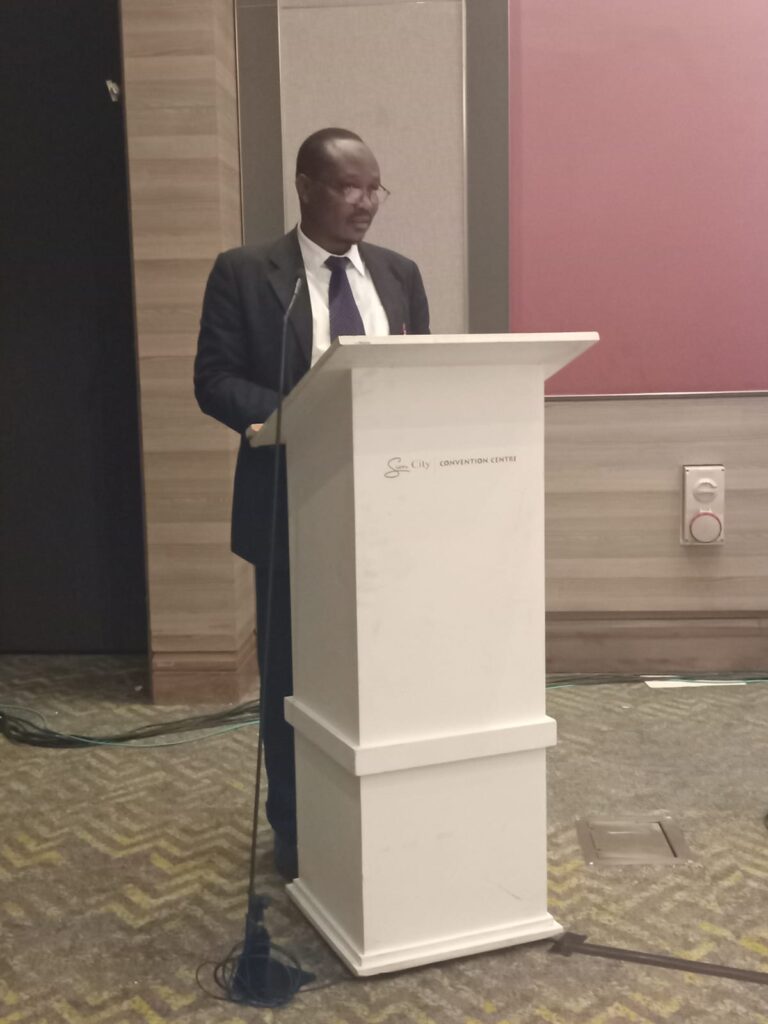
By Baboloki Semele — At a pivotal moment for Africa’s energy future, Shehu Khaleel, Senior Energy Advisor at the African Union Commission’s Department of Infrastructure and Energy, delivered an urgent and hopeful address at the G20 Energy Transitions Working Group side event on Cross-Border Energy Sector Interconnectivity. Representing the African Union Commission (AUC), at the meeting held at the end of July, Khaleel praised the Government of South Africa and the African Development Bank for hosting a strategically crucial gathering, highlighting the shared responsibility of global and African partners in tackling the continent’s fragmented energy landscape. Khaleel opened his remarks by underscoring that Africa is at a unique energy crossroads. Despite possessing 60% of the world’s best solar resources and vast renewable energy potential, including hydropower, wind, and geothermal, a significant number of Africans still lack access to reliable electricity. This paradox exists even as the continent races toward industrialization, increased trade, and climate-resilient development.
“To succeed, Africa needs not just more energy, but a coherent, integrated, and competitive electricity market that moves energy from where it is generated to where it is needed across borders and beyond bottlenecks,” Khaleel declared.
The AUC’s bold response to this challenge lies in two transformative initiatives: the African Single Electricity Market (AfSEM) and the Continental Power Systems Master Plan (CMP). AfSEM, launched in 2021 as a flagship Agenda 2063 project, is now the largest continent-wide electricity market in the world. It is designed to unify disparate national electricity markets by establishing harmonized rules, licensing frameworks, grid codes, and trading platforms that enable seamless cross-border power exchanges across Africa’s five regional power pools.
“AfSEM provides the necessary legal and regulatory architecture for interconnection,”
Khaleel said, noting that it is not only intended to reduce electricity costs but also to attract investment by fostering a transparent, rules-based market environment. The CMP, formally adopted by the African Union Heads of State in 2024, serves as the engineering blueprint of this unified market. It identifies optimal power generation and transmission configurations across the continent, mapping out critical corridors to ensure market efficiency and cross-border supply security. Together, AfSEM and CMP form a comprehensive and systemic approach that moves the continent from isolated, underdeveloped national grids to an interconnected and resilient African electricity future.
“Their convergence will significantly transform the landscape supporting regional industrial hubs, climate-resilient development, and digital economies,” Khaleel affirmed.
Addressing the global partners in the room, Khaleel argued that the G20’s Ten-Year Infrastructure Investment Plan presents a timely and strategic opportunity to align with Africa’s energy transformation agenda. He identified three areas of potential synergy between G20 efforts and Africa’s continental energy integration: capital mobilization, regulatory convergence, and institutional capacity-building. Noting the infrastructure financing gap of $30–$40 billion annually, Khaleel called on G20 partners to blend concessional capital with guarantees and risk-mitigation tools to crowd in private sector investment.
On the regulatory front, he encouraged G20 support for harmonizing cross-border electricity market elements such as tariff methodologies, wheeling agreements, and congestion management systems, crucial foundations for an efficient power market. He also emphasized the need to strengthen institutional capacity by collaborating with regional power pools, national regulators, and utilities to help implement and govern the increasingly complex interconnection projects. He asserted that joint initiatives between AUC, G20 governments, multilateral banks, and regional institutions are essential to operationalize AfSEM and CMP.
Khaleel made it clear that energy interconnectivity is no longer a theoretical aspiration but a continental infrastructure imperative, emphasizing that AfSEM and CMP are ready-made frameworks. He further affirmed that with the political demonstration, what is needed is coordinated implementation, financing at scale, and continued regulatory cooperation across borders. He concluded with a compelling vision of solidarity, development, and justice, stating that power connectivity is not only about engineering and economics but about dignity, opportunity, and inclusion. In his resounding call to action, he reminded global and African leaders that the continent’s path to prosperity and resilience is directly tied to its ability to interconnect its energy systems, unlock its natural potential, and cooperate across borders.